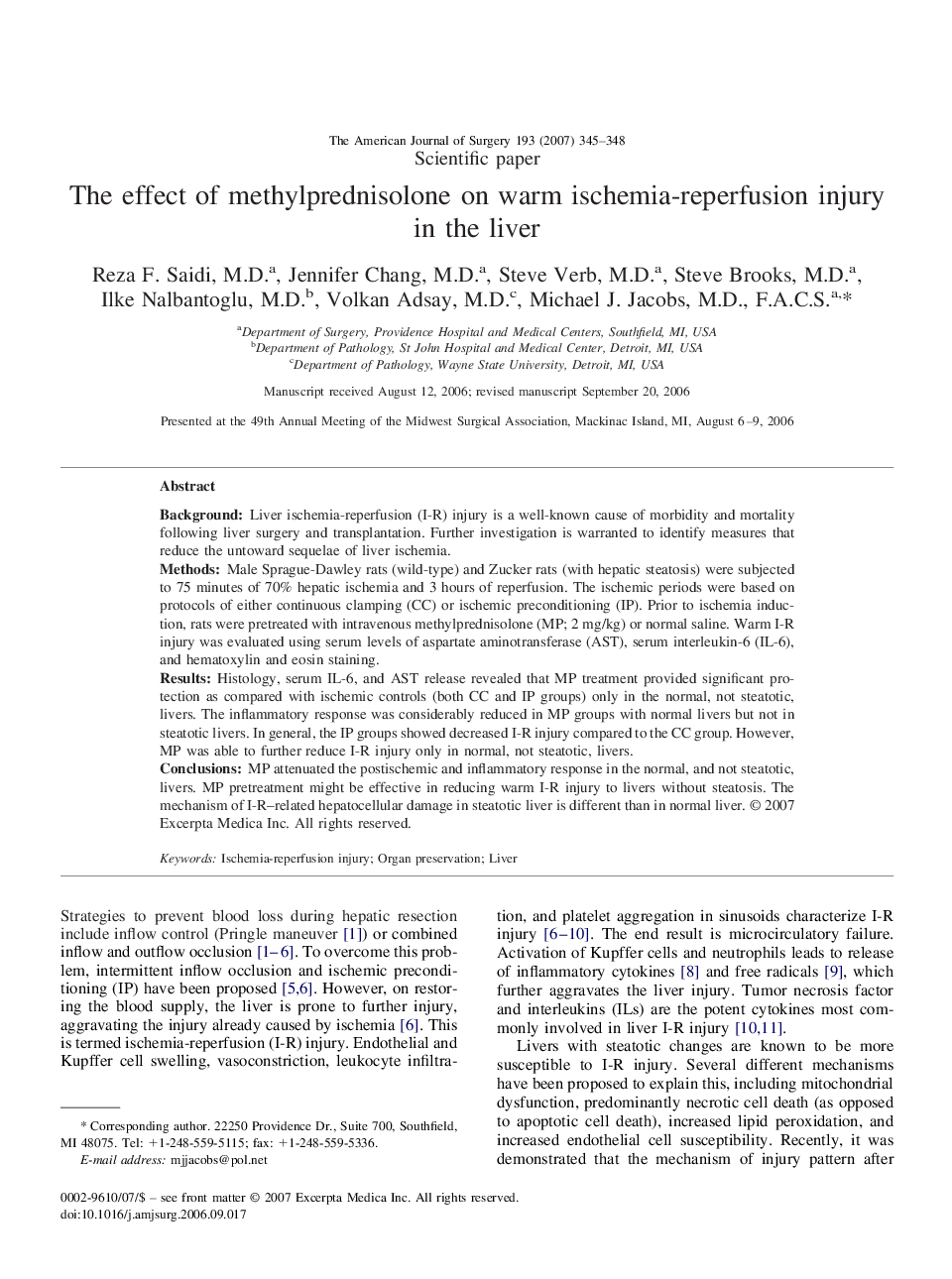| Article ID | Journal | Published Year | Pages | File Type |
|---|---|---|---|---|
| 4281673 | The American Journal of Surgery | 2007 | 4 Pages |
BackgroundLiver ischemia-reperfusion (I-R) injury is a well-known cause of morbidity and mortality following liver surgery and transplantation. Further investigation is warranted to identify measures that reduce the untoward sequelae of liver ischemia.MethodsMale Sprague-Dawley rats (wild-type) and Zucker rats (with hepatic steatosis) were subjected to 75 minutes of 70% hepatic ischemia and 3 hours of reperfusion. The ischemic periods were based on protocols of either continuous clamping (CC) or ischemic preconditioning (IP). Prior to ischemia induction, rats were pretreated with intravenous methylprednisolone (MP; 2 mg/kg) or normal saline. Warm I-R injury was evaluated using serum levels of aspartate aminotransferase (AST), serum interleukin-6 (IL-6), and hematoxylin and eosin staining.ResultsHistology, serum IL-6, and AST release revealed that MP treatment provided significant protection as compared with ischemic controls (both CC and IP groups) only in the normal, not steatotic, livers. The inflammatory response was considerably reduced in MP groups with normal livers but not in steatotic livers. In general, the IP groups showed decreased I-R injury compared to the CC group. However, MP was able to further reduce I-R injury only in normal, not steatotic, livers.ConclusionsMP attenuated the postischemic and inflammatory response in the normal, and not steatotic, livers. MP pretreatment might be effective in reducing warm I-R injury to livers without steatosis. The mechanism of I-R–related hepatocellular damage in steatotic liver is different than in normal liver.
